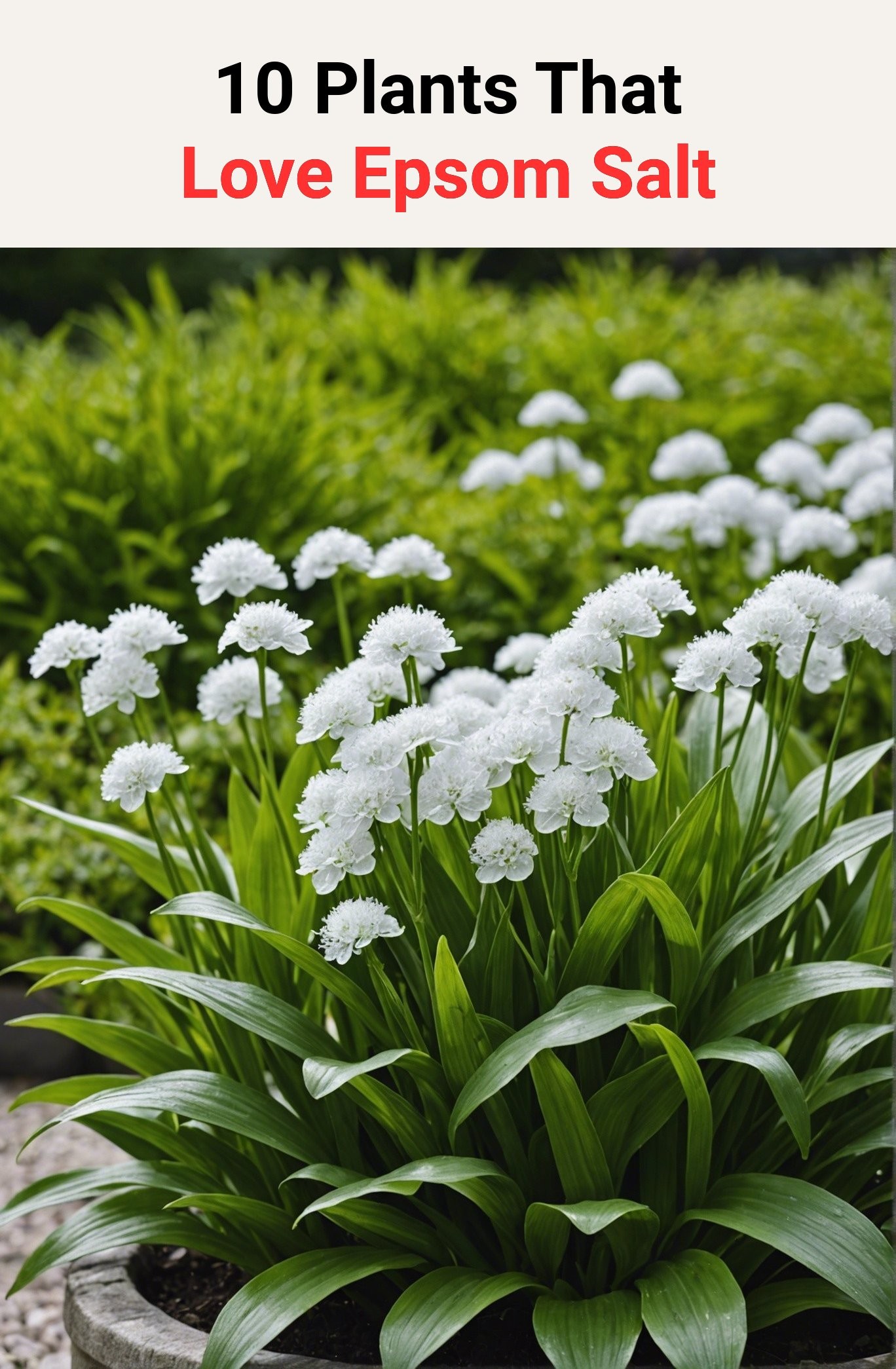Beautiful Plants For Your Interior
Beautiful Plants For Your Interior
Epsom salt, a natural wonder that can boost plant growth and health.
Did you know that certain plants thrive with a sprinkle of Epsom salt?
From roses to tomatoes, and houseplants to herbs, find out the top 10 plants that love Epsom salt and how it can benefit their growth and development.

Roses are one of the most responsive plants to Epsom salt.
The magnesium in Epsom salt helps to strengthen the plant’s cell walls, allowing it to absorb more nutrients and grow strong, healthy roots.
As a result, rose bushes produce more blooms, and the flowers themselves are bigger and more vibrant.
By incorporating Epsom salt into your rose care routine, you can expect to see an increase in fragrance, color, and overall flower production.

Tomatoes are one of the top beneficiaries of Epsom salt.
As they grow, tomatoes absorb magnesium and sulfur from the soil, which are essential for fruit production and overall plant health.
Epsom salt provides a readily available source of these nutrients, helping to increase fruit size, reduce blossom-end rot, and even improve disease resistance.

Peppers, whether sweet bell peppers or spicy hot peppers, thrive on the benefits of Epsom salt. This natural mineral compound provides essential magnesium and sulfur, which are vital for fruiting and flowering.
As peppers grow, they require a steady supply of these nutrients to produce a bountiful harvest.
Epsom salt helps to improve seed germination, increases plant growth, and enhances the overall quality of the peppers, resulting in a more flavorful and vibrant crop.
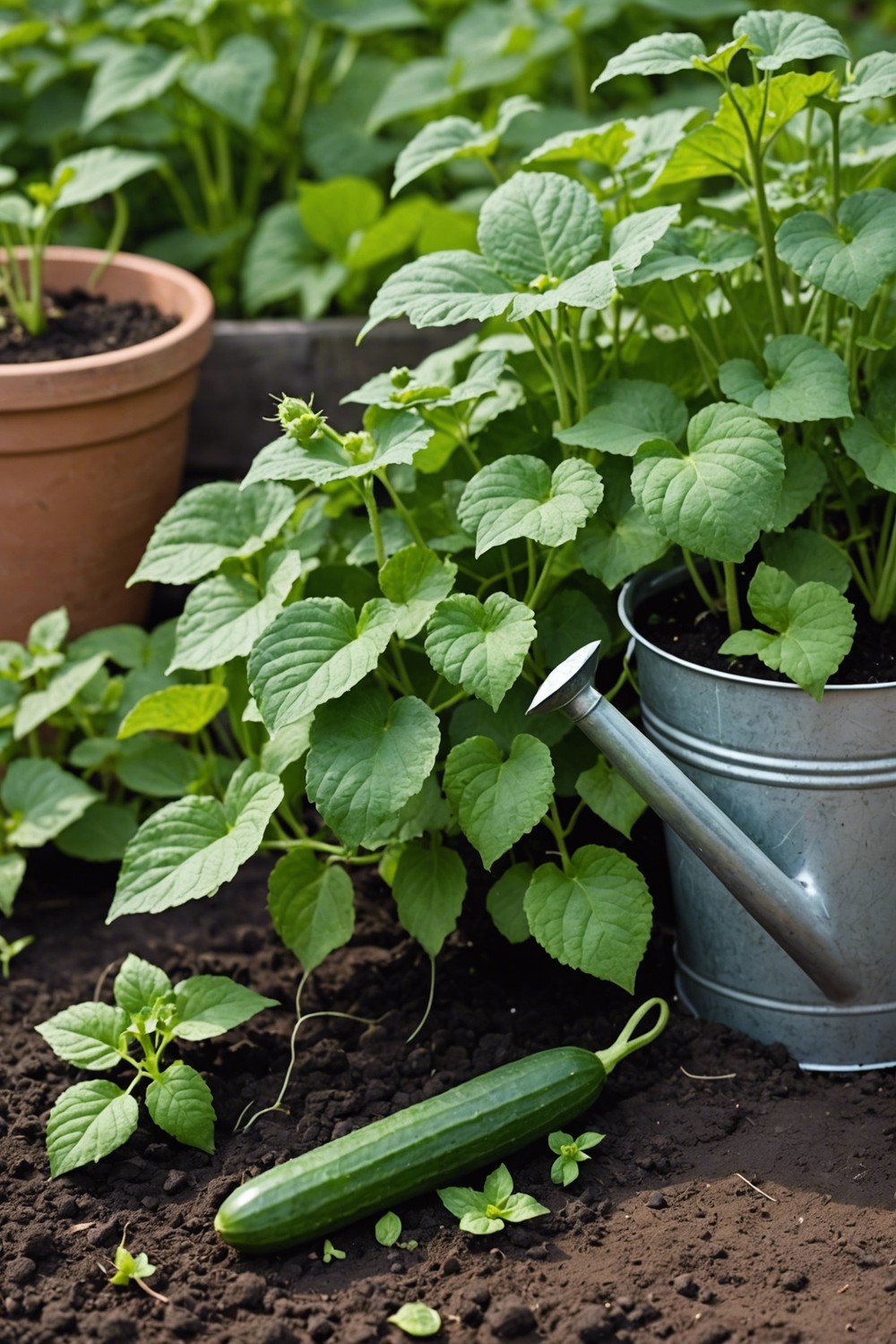
Cucumbers are one of the most responsive plants to Epsom salt. They thrive on the magnesium and sulfur provided by Epsom salt, which improves their overall health and productivity.
With regular Epsom salt application, cucumbers will grow stronger, produce more fruit, and develop a better flavor.
It’s recommended to add one tablespoon of Epsom salt to the soil when planting, and then again once a month to maintain optimal growing conditions.

Squash, a popular summer crop, loves Epsom salt.
This mineral-rich salt helps boost the plant’s growth by providing essential magnesium and sulfur.
With Epsom salt, squash plants can absorb more nutrients, resulting in a stronger root system, vibrant leaves, and an increased yield of delicious fruits.

Carrots are one of the vegetables that greatly benefit from the use of Epsom salt. The magnesium in Epsom salt helps to break down the soil and increase the absorption of nutrients, leading to healthier and stronger roots.
This, in turn, results in a more robust and sweeter carrot harvest.
Additionally, the sulfur in Epsom salt aids in the production of enzymes, which are essential for plant defense and growth.
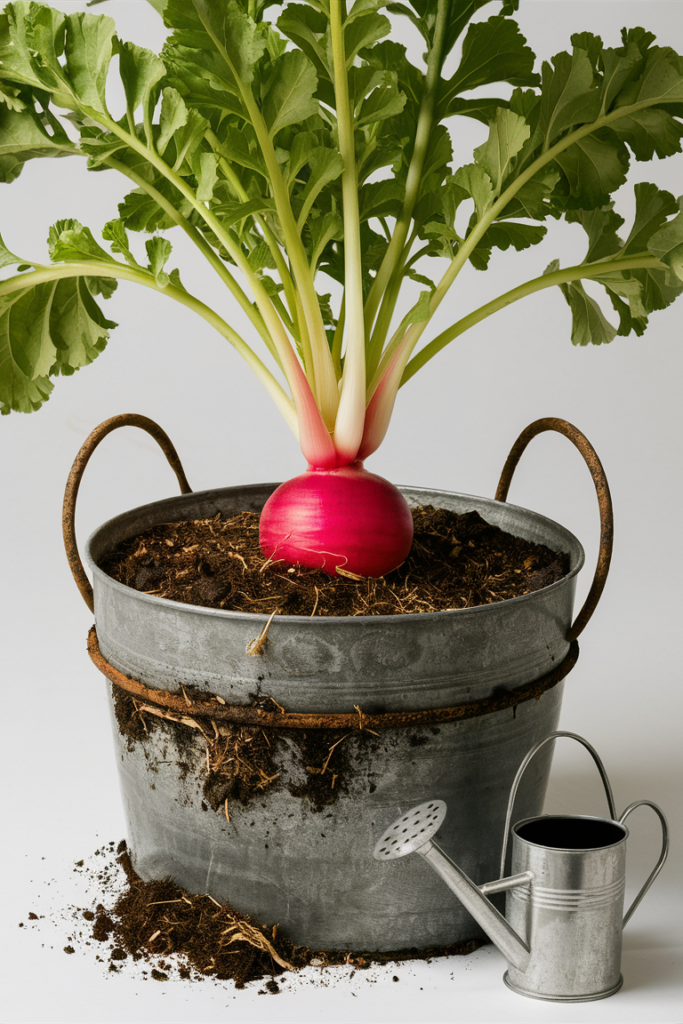
Radishes are one of the plants that greatly benefit from Epsom salt. They tend to suffer from magnesium deficiency, which can cause stunted growth, yellowing leaves, and poor root development.
Epsom salt, rich in magnesium, helps to alleviate these issues, promoting healthy root growth, stronger stems, and more robust flavor.
With Epsom salt, radishes grow faster, bigger, and more flavorful, making them a delightful addition to any salad or meal.
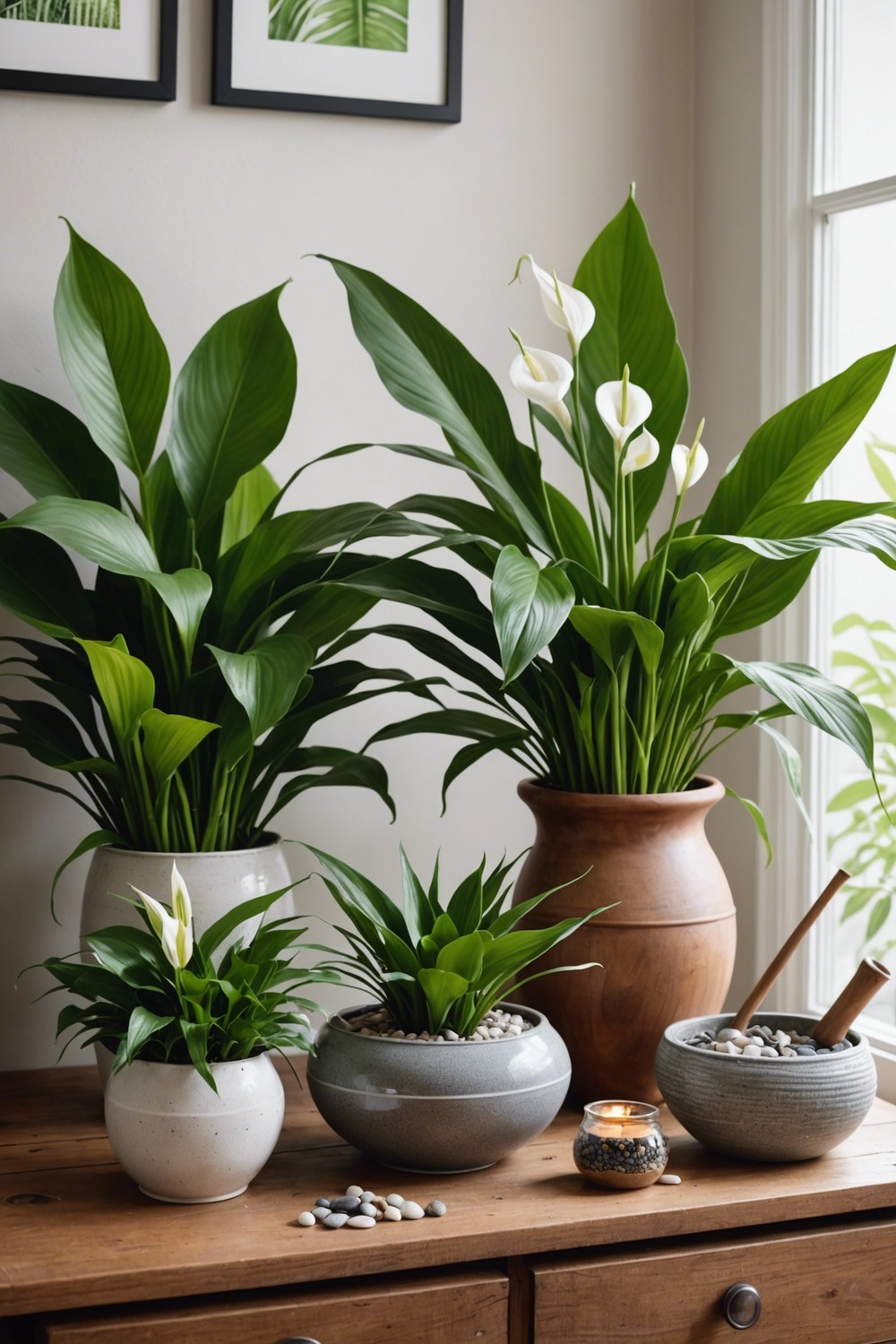
Houseplants like Peace Lilies and Spider Plants thrive with regular Epsom salt treatments.
These plants are notorious for absorbing harmful toxins and pollutants from the air, and Epsom salt helps to replenish their magnesium and sulfur levels.
By incorporating Epsom salt into their watering routine, these plants will flourish, promoting healthy foliage and blooming.
In fact, Peace Lilies are known to bloom more frequently when Epsom salt is present, and Spider Plants will produce more offsets and variegated leaves.
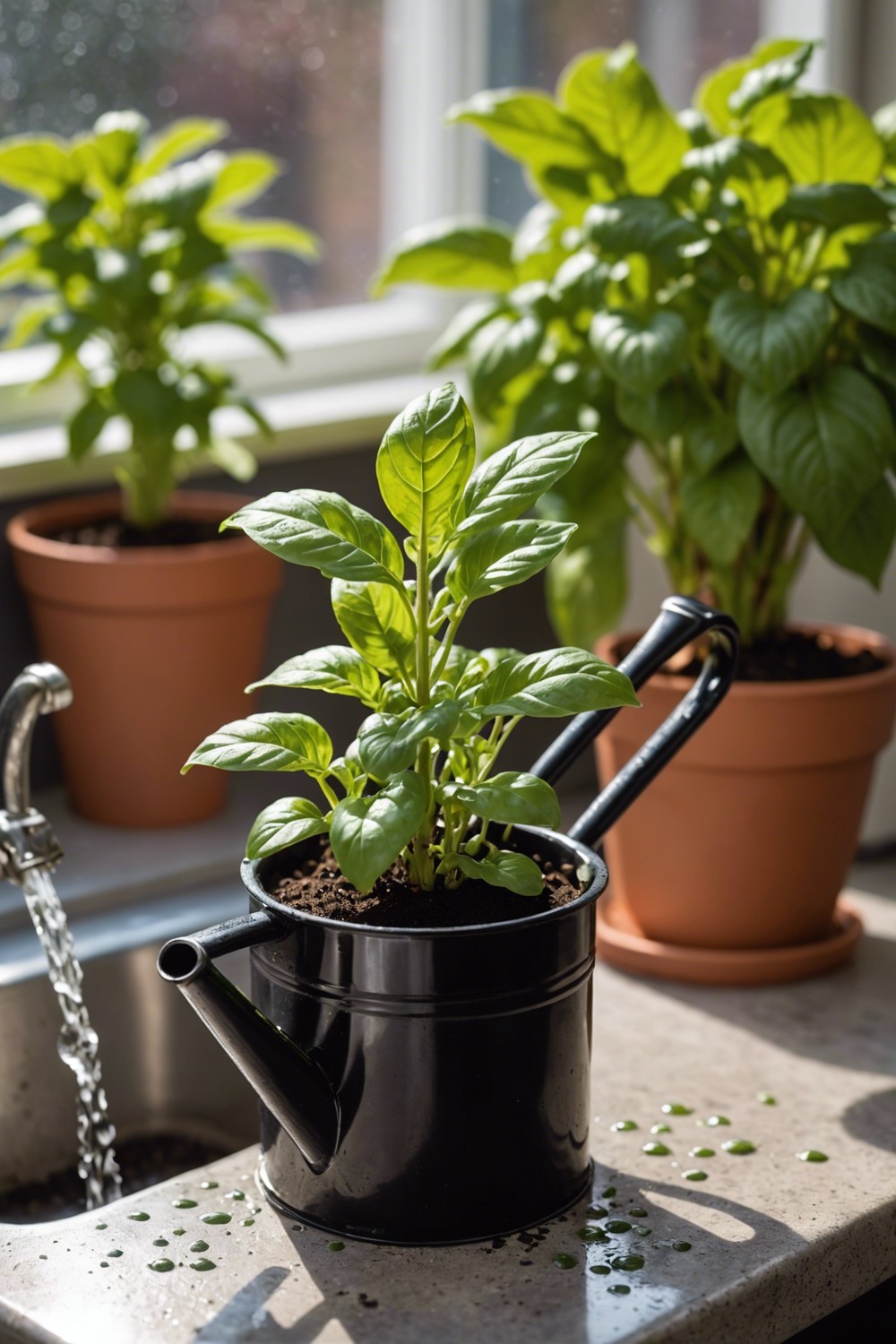
Basil is one of the most popular herbs used in many cuisines, particularly in Italian and Thai cooking.
This fragrant herb loves Epsom salt and will thrive when it’s added to the soil.
Epsom salt provides magnesium, which helps basil plants grow strong and healthy, producing bigger leaves and more flavorful oils.
With Epsom salt, basil plants will have better water uptake, reducing the risk of disease and pests.
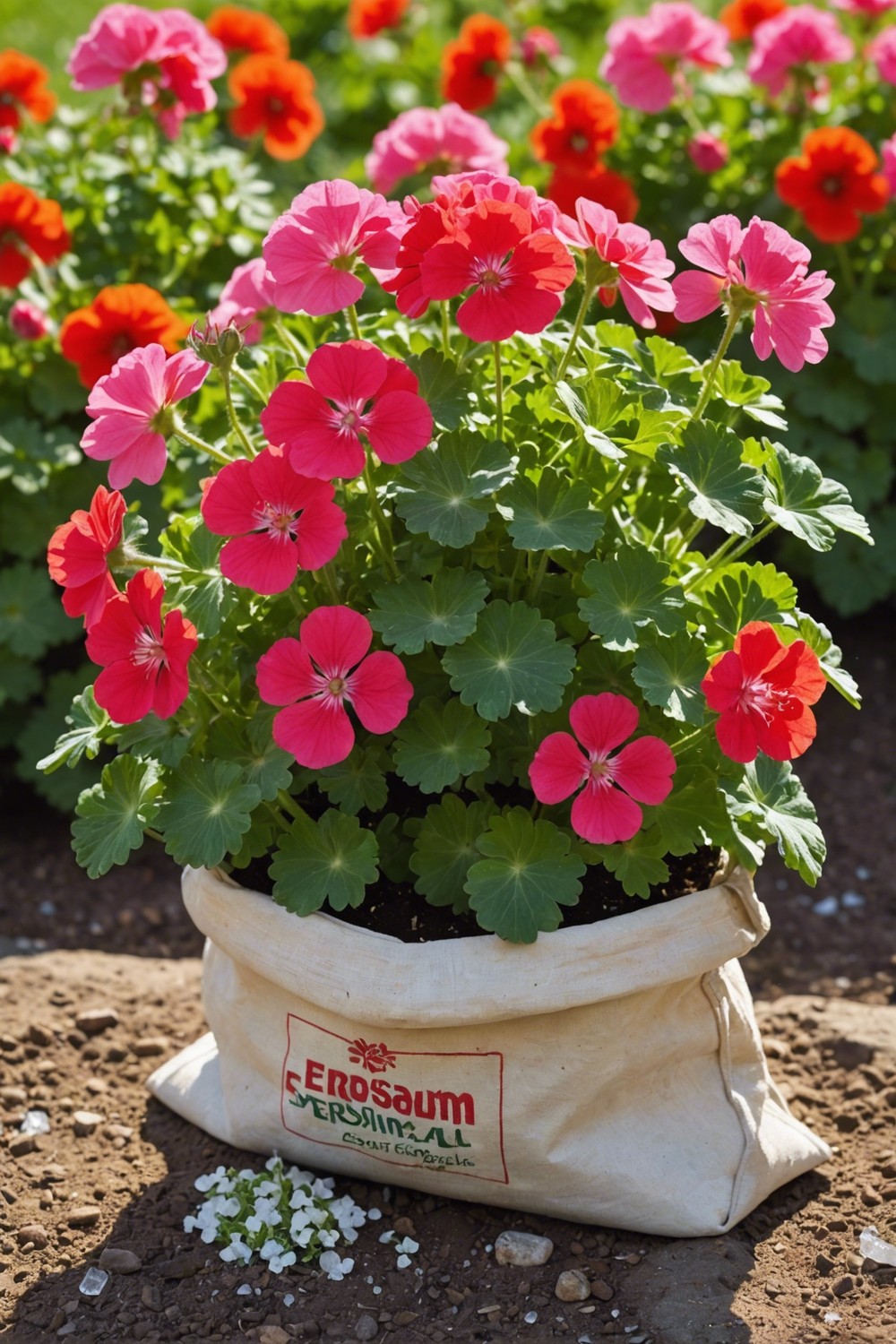
Geraniums thrive in well-draining soil with a slightly acidic pH, making Epsom salt an ideal additive to their soil.
This flowering plant loves the magnesium boost Epsom salt provides, which helps promote healthy flower production and reduces the risk of blossom-end rot.
By incorporating Epsom salt into their care routine, geranium enthusiasts can expect an increase in vibrant blooms and a decrease in common problems like yellowing leaves.
